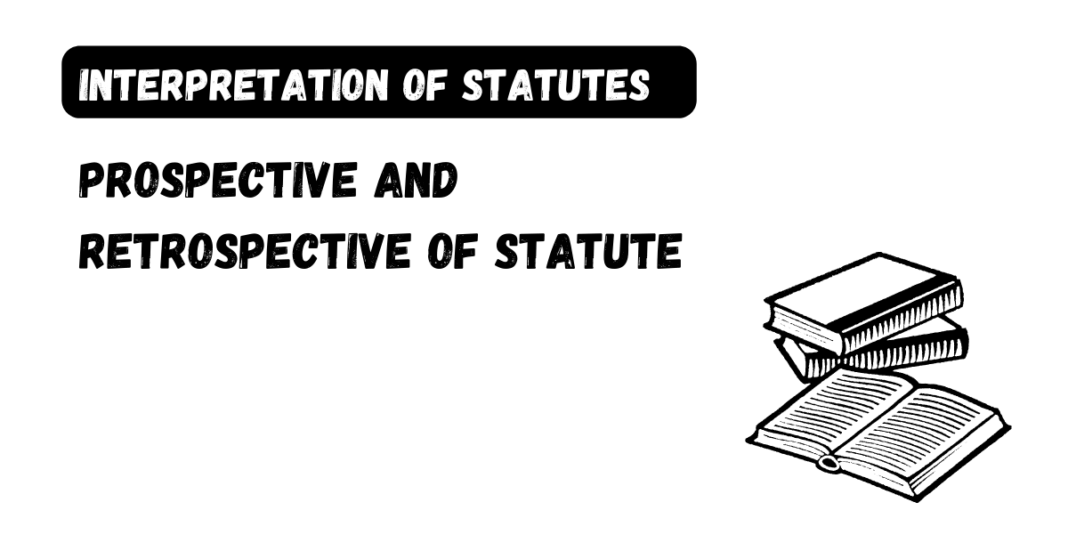Prospective and retrospective are terms used to describe the effect of a statute or law.
Prospective Effect
A statute or law that has prospective effect only applies to future events or conduct. This means that it only affects actions or events that occur after the date on which the law comes into effect. For example, if a statute is passed on 1st April 2023 with prospective effect, it would only apply to events or conduct that occur after 1st April 2023.
Retrospective Effect
A statute or law that has retrospective effect applies to past events or conduct as well as future events or conduct. This means that it can be used to change the legal consequences of actions or events that occurred before the date on which the law came into effect. For example, if a statute is passed on 1st April 2023 with retrospective effect, it would apply to events or conduct that occurred before 1st April 2023 as well as those that occur after that date.
Retrospective effect can be controversial because it can be seen as changing the rules after the fact and potentially causing injustice. As a result, courts are generally reluctant to interpret statutes as having retrospective effect unless the language of the statute clearly indicates that this is the intention of the legislature.





